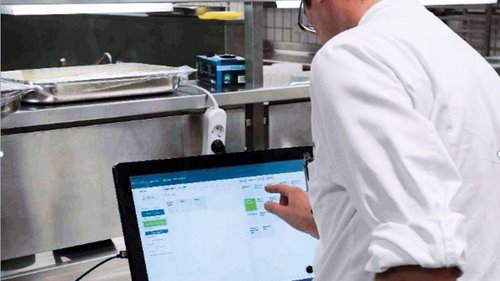Food waste – monitoring and prevention measures
A serious problem

According to Germany’s Federal Statistical Office (Destatis), the total quantity of food waste produced along the value chain in Germany in 2020 was approx. 11 million tonnes fresh weight. The largest share of 59 % was produced by private households. Around 55 % of the total quantity is considered to be theoretically avoidable food waste. This quantity would be sufficient to feed the residents of the City of Augsburg for 30 years!
The European Union has pledged to meet the United Nations goal of halving food waste at the retail and consumer level, and reducing food losses along production and supply chains by 2030 (Agenda 2030 UN SDG 12.3). In 2023, the Federal Ministry for Food and Agriculture (Bundesministerium für Ernährung und Landwirtschaft) and German food wholesale and retail trade companies ratified a pact to reduce food waste, with the goal of reducing it in their companies by 30 % by 2025 and by 50 % by 2030.
Food waste prevention is required on all levels of the value chain
Implementation of food waste prevention measures is already mandatory under the Waste Framework Directive. They exist on all levels of the value chain. Food waste can already be prevented in primary production by optimising harvesting techniques. It is also possible to process non-marketable goods. In addition, optimised logistics concepts can be used in processing and production to ensure less damaged or spoiled food. The food retail industry can opt for price reductions or food donations and food sharing to prevent food with a short shelf life from becoming waste. Many digital measuring devices and monitoring apps now exist for the eating out sector (restaurants, canteens, etc.), which demonstrably lead to less food waste. One possibility for reaching citizens is to sensitise them by integrating the topic in curriculums and educational programmes.
The EU sets measurement standards and names minimum quality requirements
To organise EU-wide monitoring, the EU Commission published the delegated decision (EU) 2019/1597 supplementing the Waste Framework Directive. In it, a common methodology and minimum quality requirements are described for the uniform measurement of levels of food waste and waste reporting obligations are introduced. The measurement methods named are direct measurement, mass balances, waste composition analysis, interviews, coefficients and production statistics, counting and diaries. Which of the methods is used depends on the actual situation of the investigation level and must be assessed case by case.
